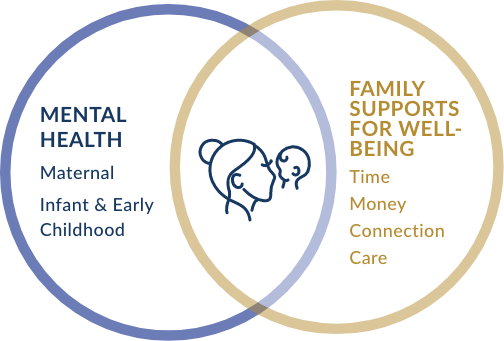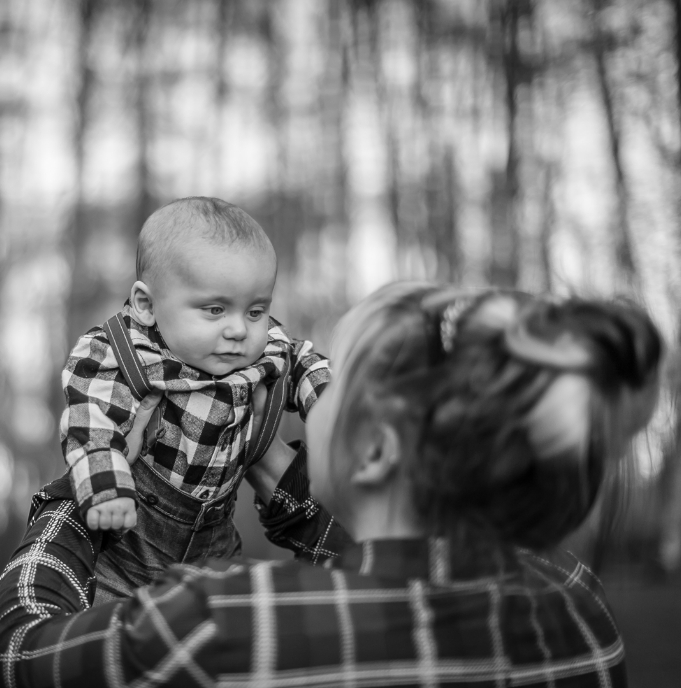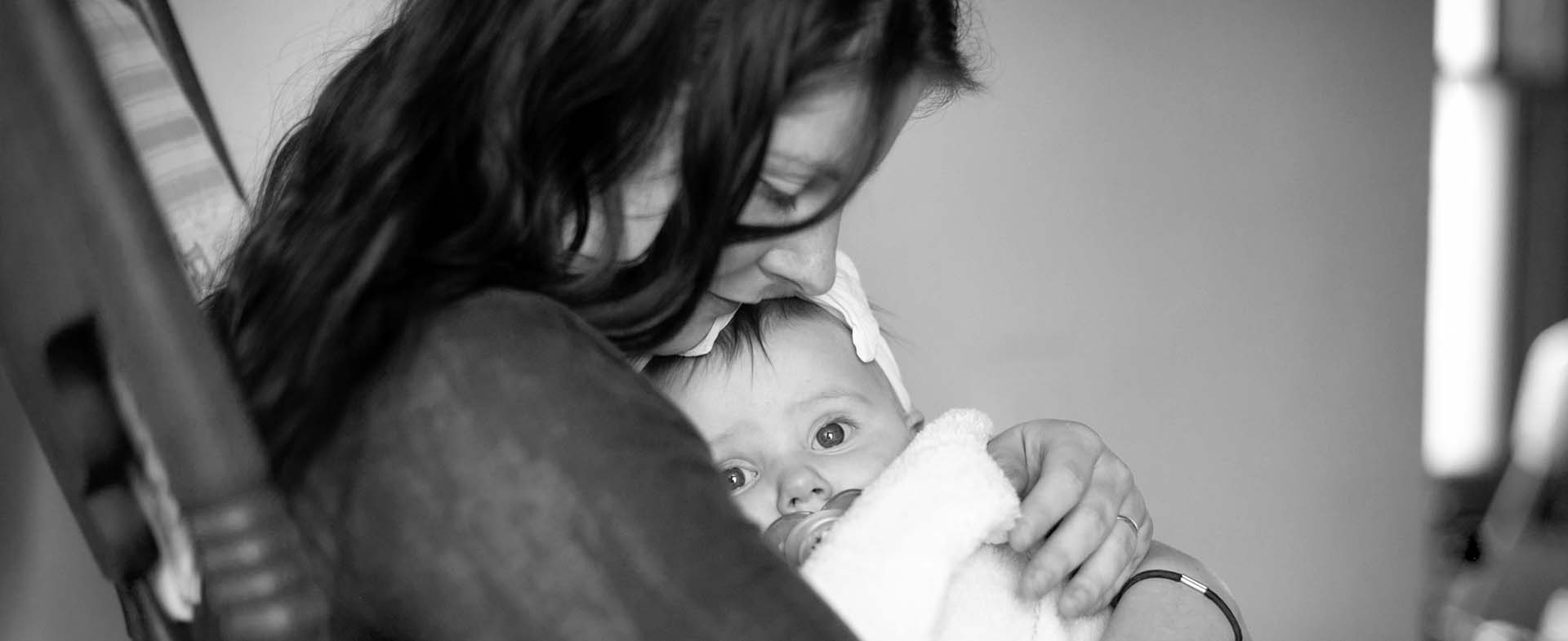All children deserve the best possible start in life – to feel the nurturing security that allows them to explore their world while enjoying deep connection with those closest to them. But young children suffer when their caregivers are not able to be predictable, emotionally regulated, and attentive. When parents experience adversity, such a poverty, trauma and racism, their children can feel the effects throughout their lives. Support and intervention in the earliest years, from birth to 3, is critical to the healthy development and long-term well-being of babies and young children.
Centering the Baby-Caregiver Relationship
Babies’ development occurs in their relationships with parents, family members, and other caregivers whom babies are entirely dependent on. To support an equitable start in life for babies, it is crucial to equitably support caregivers so they are able to provide the nurturing care babies need while buffering them from toxic stress. The caregivers furthest from equity are affected by racial, economic, and gender injustice.
When infants experience caregiving that is continually negative, unavailable, or harmful, their brains learn to focus too much attention and energy on finding ways to feel safe. Conversely, when caregiving is attentive, positive, and responsive, babies develop the lifelong ability to regulate their emotions, trust others, communicate their needs, and explore and learn.
Perigee’s Funding Approach
Perigee focuses its philanthropic funding and resources on supporting the blossoming infant-caregiver relationship – with a commitment to equity within communities of color – during the earliest years.
All primary caregivers affected by racial, economic, and gender injustice can give their babies a better start in life with good support. And some families also benefit from deeper intervention to address trauma, adversity, and mental health issues.
Our funding is thus focused within two key areas:

Maternal and Infant Mental Health
We now know babies can and do face mental health challenges, and they and their caregivers benefit from unique, developmentally appropriate mental health services. Perigee Fund prioritizes support for maternal mental health and infant and early childhood mental health as two distinctive, yet interrelated mental health areas that span the period from pregnancy through the baby’s first years.
Learn more about Maternal Mental Health
Learn more about Infant and Early Childhood Mental Health
Family Supports for Well-Being
When parents and caregivers are supported in ways that allow them to stay attuned and responsive while delighting in their children in the midst of challenges, children are protected from the effects of too much stress. Perigee Fund prioritizes the tangible supports of time, money, care, and connection.
Learn more about Family Supports

Two Open Windows
Drs. Pilyoung Kim and Sarah Watamura of the University of Denver call the transition to parenting a co-occurring sensitive period. During this “two open windows” period, both baby and parent are especially receptive to being shaped by their environments and mutual interactions. As a baby’s brain, the first open window, is rapidly developing, the act of caregiving calibrates the parent’s brain, the second open window.
The researchers discovered that parents dealing with overload, such as postpartum depression, chronic stress, or their own history of childhood adversity, may not show expected changes to the brain circuits that support sensitivity to their babies’ needs. Interventions that help babies and parents build their relationships, as well as supports that reduce stressors and improve material conditions, are equally important in serving the whole family while the two windows are open.
A Note about Terminology: Words Matter and Sometimes Fall Short
Infants and Babies
In the infant mental health field, the term “infant” includes fetuses in utero, babies from birth to one year, and toddlers up to age 3. As such, Perigee often uses “infant” or “baby” as shorthand for the entire prenatal-to-3 very early childhood age range.
Caregivers, Parents, Families, and Mothers
We often use these terms interchangeably, though we recognize every family is unique. While the data are clear that the millions of women who identify as mothers harbor disproportionate caregiving responsibilities, families come in different configurations and need to feel seen and included. The well-being of primary caregivers — co-parents, grandparents, aunties, and foster parents — is inextricably linked to the well-being of small children who are entirely dependent on them.
Maternal Mental Health
Centering the mental health concerns of mothers and birthing people during pregnancy, the postpartum year, and early years of parenting has enabled us to focus on groups and systems. We recognize that not all mothers enter motherhood through pregnancy and birth. Not all birthing people identify as women and mothers. And the mental health of all primary caregivers affects early relationships and child social emotional development. We sometimes use the term perinatal mental health with partners and audiences in the health sector.
“Attachment to a baby is a long-term process, not a single, magical moment. The opportunity for bonding at birth may be compared to falling in love – staying in love takes longer and demands more work.”
T. Berry Brazelton
Sign Up for Perigee Fund News
Get updates on funding, policy, and developments in the field.

